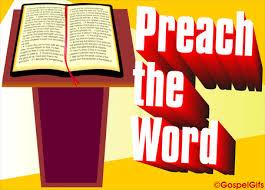
Sermons Are Preached A.M. & P.M.
Every Lord's Day
by
Michael S. Roberts
Host Evangelist
++++++++++++++++++++++++
From The Minister's Pen
Michael S. Roberts
Biblical Doctrine on Conflict Resolution
Biblical Procedure For Conflict Resolution
Matthew 18:15-18
“Moreover if your brother sins against you, go and tell him his fault between you and him alone. If he hears you, you have gained your brother. 16 "But if he will not hear, take with you one or two more, that 'by the mouth of two or three witnesses every word may be established.' 17 "And if he refuses to hear them, tell it to the church. But if he refuses even to hear the church, let him be to you like a heathen and a tax collector. 18 "Assuredly, I say to you, whatever you bind on earth will be bound in heaven, and whatever you loose on earth will be loosed in heaven. The High Street Church of Christ (Christians) as all other congregations of the Lord’s church that embraced the “Restoration Movement” slogan, “We speak where the Bible speaks and we are silent where the Bible is silent. We call Bible things by Bible names and do Bible things the Bible way.” This principle should be observed and be promoted in every area of our Christian endeavors. This is our “Scriptural Help” for this, the first week of 2014, which should serve as plumb line in resolving relational issues. The biblical procedure of conflict resolution and disciplinary measure consists generally of the following steps:
(1) A member, meets with another member, in an effort to resolve the matter one on one, this would be Personally.
Step number 1 would be – The PERSONAL APPROACH!
(2) If the first step does not resolve the matter, then the member should meet with one or more members who would become witnesses to the effort to resolve the matter Privately.
Step number 2 would be – The PRIVATE APPROACH!
(3) If the first and second steps do not resolve the matter, then the member should bring the matter to the church. The Elders/Minister/Leadership shall do everything necessary to restore the sinning member from a Public viewpoint.
Step number 3 would be – The PUBLIC APPROACH!
PERSONALLY – PRIVATELY then PUBLICLY and not the reverse!
*****************************************************
Biblical Doctrine on Church Organization
Scriptural Organization For Congregations
Of The Lord’s Church
The exclusive organization for congregations of the Lord’s church is specified in Paul’s letter to the Philippians. “Paul and Timothy, bondservants of Jesus Christ, to all the saints in Christ Jesus who are in Philippi, with the bishops and deacons” (Phil.1:1). Setting the church on the right organizational path after a transition is paramount to the work of an evangelist. “For this reason I left you in Crete, that you should set in order the things that are lacking, and appoint elders in every city as I commanded you” (Titus 1:5). This is our “Scriptural Help” for this week. First: There are MINISTERS of the gospel as revealed in the Word of God as indicated by the Holy Spirit’s reference to “Paul and Timothy as the “bondservants of Jesus Christ” (Phil. 1:1). Second: There are SAINTS who constitute the church (Phil. 1:1). Third: There are BISHOPS as overseers who “see over” and care for the church of the Lord in leading, feeding and guarding the flock (Phil. 1:1; Acts 20:28). Fourth: There are DEACONS who are the special servants and aid the spiritual leaders (ministers and bishops) in the execution of the work of the church (Phil. 1:1). The scriptural support for this biblical arrangement cannot be denied and qualified BISHOPS and DEACONS must be ordained to these roles of services in order to complete the scriptural organization of the Lord’s Church. The church is an exhibit of “the manifold wisdom of God” (Eph. 3:10-11). It is composed of two sides, the divine side and the human side. Since God, in His infinite wisdom, organized and established the church, one cannot improve on the divine arrangement. To attempt to do so is to lead the church into apostasy and failure.
*****************************************************
Biblical Doctrine on The Day of Worship
Sunday, The Christian Day Of Worship
This is the day the LORD has made; we will rejoice and be glad in it” (Psa. 118:24). In the context of this prophetic Scripture, the Psalmist summons our attention to this phraseology, “this is the DAY the Lord has made,” the first DAY of the week, which is Sunday, the DAY; Christians congregate themselves to WORSHIP God. The first DAY, which is associated with “the Lord” was given to Christian and validated by the LORD Jesus, the Christ! This is our “Scriptural Help” for this week. In Psalm 118:22 “The stone which the builders rejected has become the chief cornerstone.” This is in reference to Christ, placing this Psalm in the Messianic group of Psalms. Jesus, the Son of the Living God knew the significance of the Psalm! “Jesus said to them, "Have you never read in the Scriptures, 'The stone which the builders rejected has become the chief cornerstone…?” (Matt. 21:42 and Psa. 118:22). The gospel preacher, Peter knew the Psalm! "This is the 'stone which was rejected by you builders (the Jews), which has become the chief cornerstone” (Acts 4:11). Peter lets us know in the previous verse that the rejected stone is Christ, "Let it be known to you all, and to all the people of Israel, that by the name of Jesus Christ of Nazareth, whom you crucified, whom God raised from the dead, by Him……” (Acts 4:10). “Therefore it is also contained in the Scripture (Isaiah 28:16), "Behold, I lay in Zion A chief cornerstone, elect, precious, and he who believes on Him will by no means be put to shame." (1 Pet. 2:6). A voice must stand before God’s people unashamed and unafraid - barefaced and flatfooted and announce – The First Day of the week, and no other designated day – not the Sabbath but Sunday is the Christian Day of Worship! John, the exiled Patmos preacher announced! “I was in the Spirit on the Lord's Day, and I heard behind me a loud voice, as of a trumpet” (Rev. 1:10). Every Lord’s Day is the first day of the week, we have a choice! We can “Enjoy” the day, we are given; or, we can just “Endure” the day!
****************************************************

The system of the Bible being divided into chapters was introduced in 1238 A.D. The verse notations were added in 1551 A.D. after the advent of printing.
***************************
The top five most mentioned men in the Bible are King David, Jesus, Moses, Aaron, and Saul. Amazingly, David has 145 more mentions than Jesus does! The top five most mentioned women are Sarah, Rachel, Leah, Rebekah, and Jezebel.
Revelation contains more references to the Old Testament, 278 total from 32 books, than any other New Testament writing! The only two Bible books that do NOT use the word 'God' are Esther and the Song of Solomon.
****************************
Real Estate agents say that there are only three important things to check out when looking for a piece of property: location, location and location! Something similar could be said as to the three most important aspects to successful Bible study: context, context, and context. If the passage you are reading is hard to understand, broaden your reading to the whole chapter. But, remember, the translators added the chapter divisions, so you may have to broaden your reading to include more than one chapter. You may have to read an entire book before you understand the meaning of any particular verse or passage.
****************************************************
Resources...Resources
*******************
Samaritan House
Highland Park Church of Christ
600 Geneva Avenue...Muscle Shoals, AL 35661
Phone: (256) 381-8311
Community Action Agency of Northwest Alabama, Inc.
Colbert County
505 N. Columbia Ave....Sheffield, Alabama 35660
256-383-3832
505 N. Columbia Ave....Sheffield, Alabama 35660
256-383-3832
Lauderdale County
745 Thompson St....Florence, Alabama 35630
256-766-4330
745 Thompson St....Florence, Alabama 35630
256-766-4330
Franklin County
1001 S. Washington Ave....Russellville, Alabama 35653
256-332-7534
1001 S. Washington Ave....Russellville, Alabama 35653
256-332-7534
www.caanw.org
Need Utility Assistance?
Click on the link below or type it into the web browser and follow the instructions. http://www.itfrontdesk.com/caanw.html
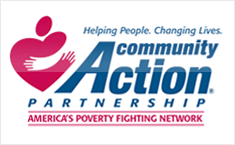
North Alabama
Christian Children's Home
6372 County Road 63…Florence, AL 35633
Phone: (256) 757-4212 Fax: (256) 757-7484
Phone: (256) 757-4212 Fax: (256) 757-7484
Website: www.nacch.com
Email: dwilliams@nacch.com
Executive Director: Don Williams
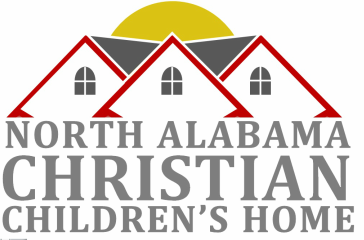

Sights from Sunday, April 20, 2014
Pictures supplied by Jane, Paula and Vera
Previous
Next

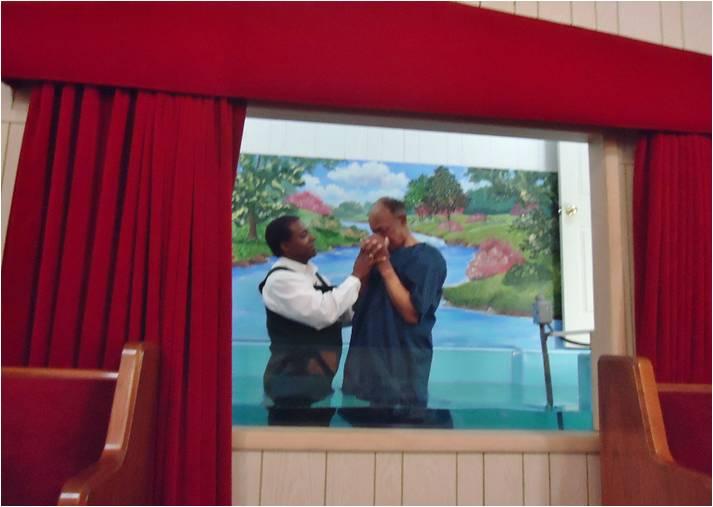
Bro. Paul Cole, We welcome you into the family of God.
1 Peter 3:21 There is also an antitype which now saves us -- baptism (not the removal of the filth of the flesh, but the answer of a good conscience toward God), through the resurrection of Jesus Christ.
1 Peter 3:21 There is also an antitype which now saves us -- baptism (not the removal of the filth of the flesh, but the answer of a good conscience toward God), through the resurrection of Jesus Christ.
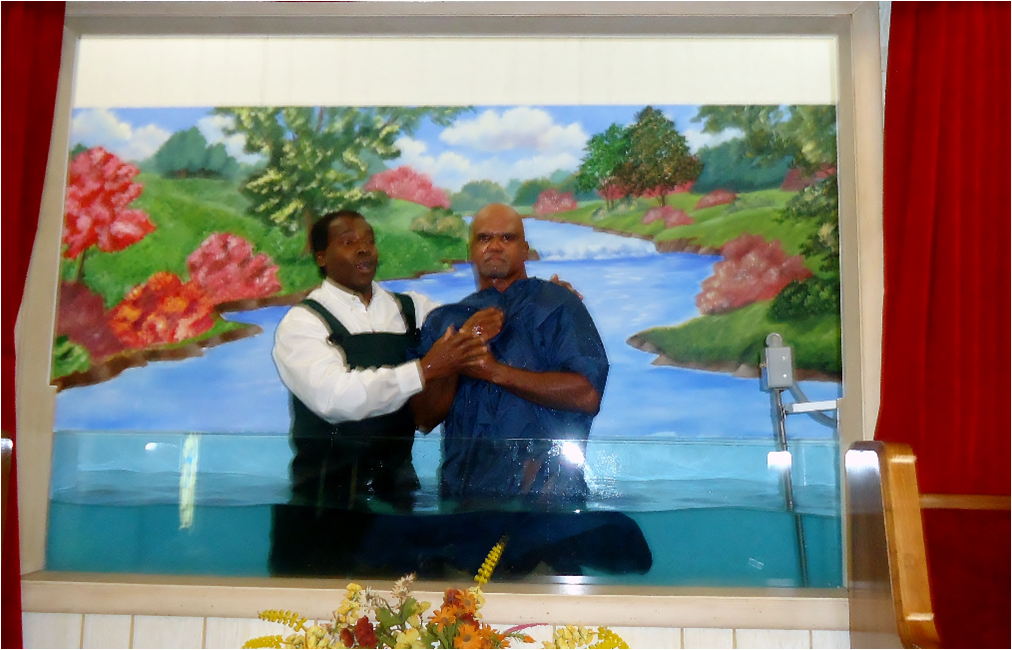
Bro. Luster Echols, we welcome you to the body of Christ.Galatians 3:27 For as many of you as were baptized into Christ have put on Christ.
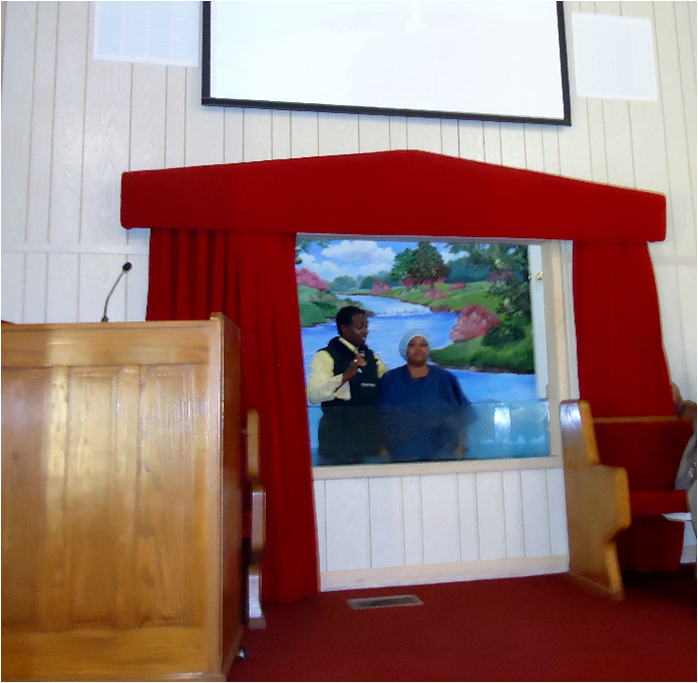
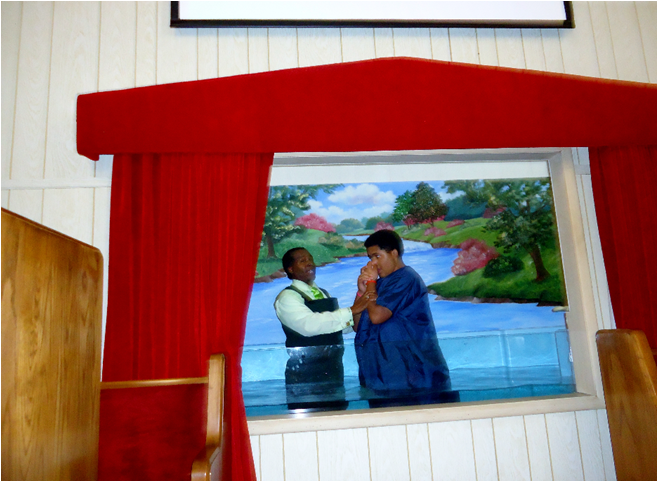
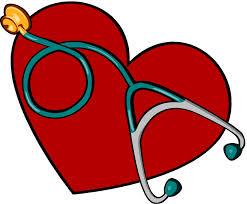
Wellness Ministry Corner
Highlights From Health Symposium - 2014
@
High Street Church of Christ
Saturday, April 26, 2014
We sincerely appreciate you taking time out of your schedule to support the “Health Symposium." Your presence was very uplifting as we strive to provide health information and screenings. Remember, “Knowledge is Power” for a healthy life.
The Wellness Ministry.
Insights on Hypertention
by Catherine Sledge, MSN, BSN, RN, CNOR
High blood pressure is a common condition in which the force of the blood against your artery walls is high enough that it may eventually cause health problems, such as heart disease. Blood pressure is determined by the amount of blood your heart pumps and the amount of resistance to blood flow in your arteries. the more blood your heart pumps and the narrower your arteries, the higher your blood pressure. High blood pressure increases your risk for dangerous health conditions:
First Heart Attack: About 7 of every 10 people having their first heart attack have high blood pressure. First Stroke: About 8 of every 10 people having their first stroke have high blood pressure. Chronic (long lasting) Heart Failure: About 7 of every 10 people with chronic heart failure have high blood pressure. Kidney Disease is a major risk factor for high blood pressure.
Blacks develop high blood pressure more often, and at an earlier age, than whites and Hispanics do. More black women than men have high blood pressure. Chronic Kidney Disease (CKD) is a condition in which your kidneys are damaged and cannot filter blood as well as healthy kidneys. Because of this, wastes from the blood remain in the body and may cause other health problems.
_________________________________________
Recognizing and Managing Stress
Symptoms / Effects / Management
by Shelley Hill, RN, BSN, BSW
Renaissance Center for Emotional Health at ECM, Unit Manager
What is stress? Stress is the body’s reaction to harmful situations-whether they are real or perceived. The stress response: What causes stress for you, may not cause stress for me, Good stress vs. Bad stress. Statistics: World Health Organization (2004) reports that mental illness/any mental disorder accounts for more disability in the U.S. than any other group of illnesses, including cancer and heart disease. The CDC surveys on depression in 2006, report that 1 in 11 people meet criteria for clinical depression (which is often related to increased stress). Stress is a part of life: WHAT MATTERS MOST IS HOW YOU HANDLE IT! Many symptoms of stress can also be signs of other health problems. You may need to see your doctor. Consequences: We are not equipped to handle long-term, chronic stress without harmful consequences. Statistics: In 2006, the CDC reported 15.7% of Americans had a diagnosis of depression. In 2006, the CDC reported 12.3% of Americans had an anxiety disorder. Duke University research shows that people who are more spiritual are better able to cope with stress, they heal faster from illness, and they experience increased benefits to their health and well-being. Recognizing Stress: Triggers, Awareness, Physical Symptoms! Ask yourself why? What to do? Make a list. Stress: Stress affects our emotions, mood and behavior. Stress also effects organs and tissues throughout our body. Effects on our body: Nervous system - Musculoskeletal system, Respiratory system - Cardiovascular system - Endocrine system - Gastrointestinal system - Reproductive system. Numerous Emotional and Physical Disorders are Linked to Stress: Depression - Anxiety - Heart attacks - Stroke - High Blood Pressure - Cancer - Immune system disturbances - Insomnia. Long-term Effects of Stress: Physical, Mental, Emotional, and Physical. Responding Better to stress: Have realistic expectations - Understand what you can do - What can you change? Let go of what you can’t control - Use positive self-talk - Build a support network. Identifying Causes of Stress: Minor hassles - Major changes - Stress overload - Feeling helpless - Feeling as if you have to solve all your problems at once. Signs and Symptoms of Stress: Frequent headaches - Grinding teeth - Tremors - Neck ache - Faintness - Little interest in appearance - Reduced work efficiency - Frequent colds - Heartburn - nausea - Panic - Depression - Anxiety - guilt - worry - Increased or decreased appetite - Forgetfulness - Feeling overwhelmed - Frequent crying spells or suicidal thoughts - Over reaction to petty annoyances - Obsessive or compulsive behavior - Constant tiredness - weakness - fatigue - Increased smoking - alcohol, or drug use - Impulse buying. What are YOUR Signs and Symptoms of Stress? Ponder this question. Keys to Stress Management: Physical activity - Relaxation techniques - Meditation - Yoga - Tai chi - Get plenty of sleep - Get enough rest - Make time for yourself - Eat a balanced diet - Nourish your spirit - Have some fun - Avoid alcohol and tobacco use - Learn to relax - Go to your doctor if needed. Spirituality: A less tangible, but no less useful way to find stress relief is through spirituality. Spirituality aids in development of our personal value system. It arises from our connection with ourselves and with others. It helps us find meaning in life.Spirituality is different for everyone: Spirituality Benefits - Feel a sense of purpose - Connect to the world - Release control - Expand your support network - Lead a healthier life. Self-discovery: What brings you joy? What do you value most in life? What inspires you and gives you hope? What are your important relationships? What are your proudest achievements? Duke University Study: Hospitalized people who never attended church have an average stay of 3 times longer than people who regularly attend church. Heart patients were fourteen times more likely to die following surgery if they did not practice religion. People who are more religious tend to become depressed less often and when they do become depressed, they recover faster. Elderly people who rarely attended church had a stroke rate double that of people who attended regularly.
Foot prints in the sand
(inserted by web administrator)
One night I had a dream--I dreamed I was walking along the beach with the Lord and across the sky flashed scenes from my life. For each scene I noticed two sets of footprints, one belonged to me and the other to the Lord. When the last scene of my life flashed before me, I looked back at the footprints in the sand. I noticed that many times along the path of my life, there was only one set of footprints. I also noticed that it happened at the very lowest and saddest times in my life. This really bothered me and I questioned the Lord about it. "Lord, you said that once I decided to follow you, you would walk with me all the way, but I have noticed that during the most troublesome times in my life there is only one set of footprints. "I don't understand why in times when I needed you most, you should leave me." The Lord replied, "My precious, precious child, I love you and I would never, never leave you during your times of trial and suffering. "When you saw only one set of footprints, it was then that I carried you." by Mary Stevenson. www.footprints-inthe-sand.com.
Prayer and Meditation: What is prayer and how is it helpful? Meditation - The importance of spirituality in stress management - How to meditate - Meditation! What relationships are most important to you? Don’t sweat the small stuff! (relax) We need hope to cope!
_________________________________________
Perpetual Planning
by Dr. Lisa Graves-Minor
Why Plan? Most of us plan ahead in life.
Expected Events: Weddings, Babies, Vacations and Retirement. Unexpected Events: Accidents, Illness and we buy insurance for the unexpected. This is not being morbid! This is being realistic.The Benefits of Perpetual Planning: Peace, Control & Care. Peace of Mind: Many who have undergone the emotional strain of arranging a funeral within hours of losing a loved one have made the choice to pre-plan their own funeral. Doing so lifts the burden from their loved ones by relieving decision-making pressure at a time of grief and emotional stress. Your Funeral, Your Choices: Pre-planning provides you with the time needed to make practical, detailed decisions that reflect your standards, lifestyle, taste and budget. Your Funeral, Your Budget: You do not have to set aside funds for your plan, but doing so protects you against escalating funeral costs. By locking in today's funeral costs and ensuring that the necessary funds are set aside, you help relieve yourself of unnecessary future worry and your survivors of an unexpected expense. Step One: First, decide what you want. Write a list of what you want, and how you want it. Step Two: Second, decide how much you want to spend. How much can you afford? Make a budget. When you prearrange a funeral, you want to arrange one which fits your needs today and into the future. The Process: Generally, funeral plans consist of a two step process: first, making the funeral arrangements (preneed funeral contract) and second, funding the cost of the prearrangement funeral through insurance. My Choices: It is possible to select funeral goods and services without pre-funding the funeral. When you do this, you pick your casket, plan the program, and make other choices—ahead of time. Two Main Choices: (1) Casket, Vault, and other services (2) Where you want to be buried (cemetery choice). The Benefits of Pre-Planning: Convenience, Comfort, Less Stress and Less Confusion. Pre-Pay: You can also pre-fund a funeral without selecting specific goods and services. In this case, you pay for your funeral, and then you leave the planning of the actual service to your loved ones. Pre-Plan and Pre-Pay: Or you can help your loved ones by both planning and paying ahead of time for less stress and confusion for those you leave behind. The Benefits of Prefunding: Eliminates stress, Financial security, Option to pay over time, Known price and Exempt Asset. Ways to Prefund: All prearranged funerals are paid through insurance. Options: Full payment –Using an insurance policy that you already have. You can take out an insurance policy, and make monthly payments. If you have saved for your funeral, you can make a prearranged funeral and make a single payment. The advantage is that you pay at today’s price, and if the price goes up, you are still provided the funeral you planned and arranged at the current price that you paid. YOU GET WHAT YOU PAID FOR! The ALA insurance dept. requires that pre-funded funerals are covered by investment or insurance. Thompson and Son chose insurance. We do not speculate on your money. If you move, prefunded funerals can be transferred. Guidelines: ALWAYS USE A REPUTABLE FUNERAL HOME and always use a licensed insurance agent. Get Organized: Know where important documents are and make sure a trusted family member or friend knows as well. Save Time, Plan Ahead: You can be as specific as you want. There are preplanning guides to help you make decisions. There are lists that will tell you the decisions that have to be made. Be a Control Freak! Make sure your wishes are clear. By making a pre-arranged funeral, you tell your family exactly what to do. Live in Peace, Leave in Peace and Rest in Peace.
For more information:
Ms. Sabrina Turner
Licensed Insurance Agent
Thompson & Son Funeral Home
Phone: 256-764-2651
Time: 8:00 a.m.to 4:00 p.m.
_________________________________________
Hospice (Comfort Care/End of Life
by Chip Wicker, RN
Director of Operation Amedisys
Home Health and Hospice
The History of Hospice: The term hospice comes from the same linguistic root as hospitality. It can be traced back to medieval times when it referred to a place of shelter and rest for the weary or ill travelers on a long journey. 1963 Dr. Saunders introduced the idea of specialized care for the dying to the United States. 1965 Florence Ward, then Dean of the Yale School of Nursing, invites Saunders to become a visiting faculty member of the school. 1967 The first modern hospice, St. Christopher’s was founded in England. 1974 The first hospice in the United States began in New Haven, Connecticut. 1983 Medicare began offering a hospice benefit. 1986 Hospice benefit offered to terminally ill patients in Nursing Homes. Mission of Hospice: To affirm life and view death as a natural process. Is not designed to hasten death or “help” someone die. To help patients live the remainder of their lives as fully as possible. The Interdisciplinary Team works together to deliver hospice care so that the patient and loved ones will have a peaceful, comfortable death, in their own environment. Appropriateness of Hospice: Life expectancy is not by the book. A patient is ready for hospice when they have decided to pursue comfort/palliative care, rather than aggressive/curative treatment. Patients will still be treated for symptom management, and continue treatment for diagnosis other that their hospice diagnosis.
Survey Results of Patient Knowledge of Hospice:
75% of Americans do not know that hospice care can be provided in the home or LTCF
75% of Americans do not know that hospice care can be provided in the home or LTCF
90% did not realize that hospice care is covered through Medicare at 100%
85% of the population want to “die in place" (Home, ALF, LTCF)
99% of families that had hospice services were satisfied with the care delivered and would recommend.
Why Do So Many Die Without It? Patients and families may: Lack knowledge about hospice - Have misconceptions regarding hospice. Ex: viewed as “a place” not a service or believe that they must give up hope - Be unaware or uninformed about the patient’s prognosis - Be confused regarding treatment options - Be in denial regarding prognosis. What Services Does Hospice Provide?
Physician Services - Nursing Services - Hospice Aide Services - Social Work Services - Spiritual Care Services
Volunteer Services - Bereavement Services - Medications related to hospice diagnosis - Equipment needed for comfort or safety. Medications & Equipment: Hospice provides all medications related to the disease necessary for pain and comfort measures - Hospice also provides all medical equipment necessary to meet the needs of the patient related to the hospice diagnosis for comfort and safety. Physician Services: Oversight of the Plan of Care
Expertise in palliative care symptom management - In-service training for healthcare professionals who are caring for patients with a terminal illness.
Nursing Services: Ongoing assessment and management of symptoms - Teaching of patient, family members, and caregivers regarding the care of the patient, progression of the disease, and signs and symptoms of death and dying process - Coordination of the Care team.
Hospice Aide Services: Bathing and personal care of the patient - Keep patient area clean - Companionship and emotional support - Showing the family and caregivers how to safely assist patient with activities of daily living.
Social Work Services: Patient and Family Counseling - Assessment of the patient’s and family needs, & acceptance of theses services - Assist with utilizing resources, such as community agencies - Assistance with funeral planning and end of life concerns.
Spiritual Care Services: Assess spiritual & cultural needs of the patient and family - Assist with connecting the patient with local church affiliation - Facilitate the patient’s desire to fulfill spiritual/cultural practices & rituals - May assist with funerals and memorial services.
Volunteer Services: Provide companionship and supportive relationship with the patient and family - Ability to run errands and help reduce family stress - Provide respite for caregivers when they have scheduled appointments. - At times, just simply visit the patient. Bereavement Services:
Provide support to family members prior to death of a loved one - Provide bereavement support to meet the families immediate post death needs - Ongoing Bereavement services for up to 13 months after death
Support Groups for grieving family members.
Four Levels of Hospice Care:
1. Routine Home Care (RHC)
2. Continuous Home Care (CHC)
3. Inpatient Respite Care (Respite)
4. General Inpatient Care (GIPHow Does Hospice Impact Health Care Costs?
Researchers at Duke University found that hospice reduced Medicare costs by an average of $2, 309 per hospice patient - The study found that Medicare costs would be reduced for seven out of ten hospice recipients if the eligible hospice patient had elected hospice earlier.
Understanding Hospice Payment: Any patient with Medicare part A has full hospice benefit - Most private health insurances offer a hospice benefit - People without insurance or no hospice benefit may be eligible for care
Hospices are reimbursed on a per diem basis. This is a daily rate paid to the hospice to provide all services, medications and equipment related to the end stage diagnosis.
_________________________________________
What Is High Blood Pressure?
Submitted by Catherine Sledge, RN
Hypertension or high blood pressure refers to the force of blood pushing against artery walls as it courses through the body.
Blood pressure is determined by the amount of blood your heart pumps and the amount of resistance to blood flow in your arteries. The more blood your heart pumps and the narrower your arteries, the higher your blood pressure. Like air in a tire or water in a hose, blood fills arteries to a certain capacity. Just as too much air pressure can damage a tire or too much water pushing through a garden hose can damage the hose, high blood pressure forces the heart to work far beyond its capacity. Along with injuring blood vessels, hypertension can damage the brain, eyes, and kidneys.
A blood pressure reading appears as two numbers. The first and higher of the two is a measure of systolic pressure or the pressure in the arteries when the heart beats and fills them with blood. The second number measures diastolic pressure or the pressure in the arteries when the heart rests between beats.
Top number Bottom number Your category*
(systolic) (diastolic)
in mm Hg in mm Hg
Below 120 120/80 Below 80 Normal blood pressure
120-139 120/139 80-89 Pre-hypertension
140-159 140/90 90-99 Stage 1 hypertension
160 or more 160/100 100 or more Stage 2 hypertension
Blood Pressure Levels Vary by Age
Age Men (%) Women (%)
20-34 11.1 6.8
35-44 25.1 19.0
45-54 37.1 35.2
55-64 54.0 53.3
65-74 64.0 69.3
75 and older 66.7 78.5
All 34.1 32.7
Blood Pressure Levels Vary by Race and Ethnicity
Race of Ethnic Group Men (%) Women (%)
African Americans 43.0 45.7
Mexican Americans 27.8 28.9
Whites 33.9 31.3
All 34.1 32.7
It is normal for blood pressure to vary from person to person. Blacks develop high blood pressure more often, and at an earlier age, than whites and Hispanics do. More black women than men have high blood pressure. You can have high blood pressure (hypertension) for years without any symptoms. If your blood pressure remains consistently high, talk with your doctor about treatment
Source Cited: www.mayoclinic.org/diseases-conditions/high-blood-pressure/basics/definition/con-20019580Mayo Foundation for Medical Education and Research. 1998-2014
_________________________________________
Pulse And Target Heart Rate
Submitted by Terri Moore, RN
Your pulse is the number of times your heart beats in a minute - also known as your heart rate. Knowing how to take your pulse can help you evaluate your fitness level. For children ages 6 to 15, a normal resting heart rate is 70 to 100 beats per minute. For adults 18 and older, a normal resting pulse is 60 to 100 beats per minute – if you exceed 100 beats per minute, don’t panic, but do see a doctor.
How to Take Your Pulse: (1) Place the tips of your index, and middle fingers on the palm side of your other wrist, below the base of the thumb. Or, place the tips of your index and middle fingers on the side of your neck, underneath your jawbone (2) Press lightly with your fingers until you feel the blood pulsing – you may need to move your fingers around slightly until you feel the pulsing (3) Look at a watch or clock with a second hand (4) Count the beats you feel for 10 seconds. Multiply this number by six to get your heart rate per minute. Finding Your Maximum Heart Rate: Your maximum heart rate is the higher your pulse rate can get. To calculate your predicted maximum heart rate, use the following formula – Subtract your age from 220, this is your predicted maximum heart rate. For example, a 40 year-year-old’s predicted maximum heart rate is 180. Your actual maximum heart rate can be determined by a graded exercise test. Please note that some medications and medical conditions may affect your maximum heart rate. If you are taking medications or have a medical condition (such as heart disease, high blood pressure or diabetes), always ask your health care provider if your maximum heart rate (and target heart rate) should be adjusted.
Hitting The Target: You gain the most benefits and lessen the risks when you exercise in your target heart rate zone. Usually, this is when your pulse is 50 to 75% of your maximum heart rate. For example, a 40-year-old’s target heart rate range from 90 to 135. To find out if you are exercising in your target zone, stop exercising and check your pulse. If your pulse is below your target zone, increase the intensity of exercise. If your pulse is above your target zone, decrease intensity. When beginning an exercise program, you may need to gradually build up to a level that is within your target heart rate zone, especially if you have not exercised regularly before.





























